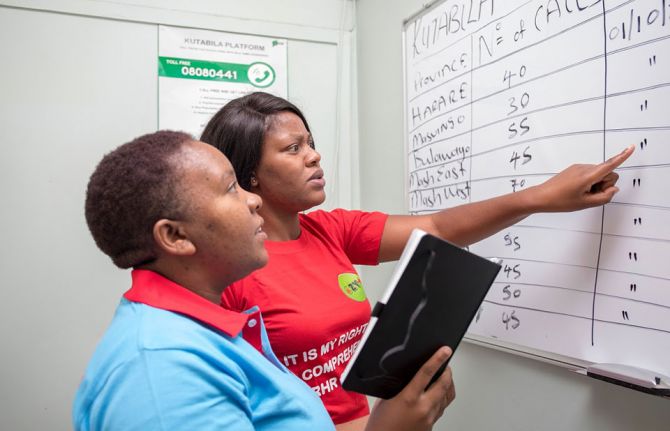

Update
New modelling shows COVID-19 should not be a reason for delaying the 2030 deadline for ending AIDS as a public health threat
14 December 2020
14 December 2020 14 December 2020Data reported to UNAIDS by countries have been used to project the potential impact of the COVID-19 pandemic on the global HIV response over the next five years. Several scenarios with different durations of service disruptions of between three months and two years were modelled.
The disruptions included: (a) a rate of increase in HIV treatment half the pre-COVID-19 rate; (b) no voluntary medical male circumcision; (c) 20% complete disruption of services to prevent vertical transmission; and (d) no pre-exposure prophylaxis scale-up. An important assumption across all the scenarios was that the current research pipeline would generate one or more safe and effective COVID-19 vaccines, and that the world will succeed in rolling out vaccines globally.
Results from the model showed that COVID-19-related disruptions may result in 123 000 to 293 000 additional HIV infections and 69 000 to 148 000 additional AIDS-related deaths globally. More positively, however, these projections show that the COVID-19 pandemic’s effects on the HIV response would be relatively short-lived. Using these projections, UNAIDS and its partners have concluded that the COVID-19 pandemic should not be a reason for delaying the 2030 deadline for ending AIDS as a public health threat.



